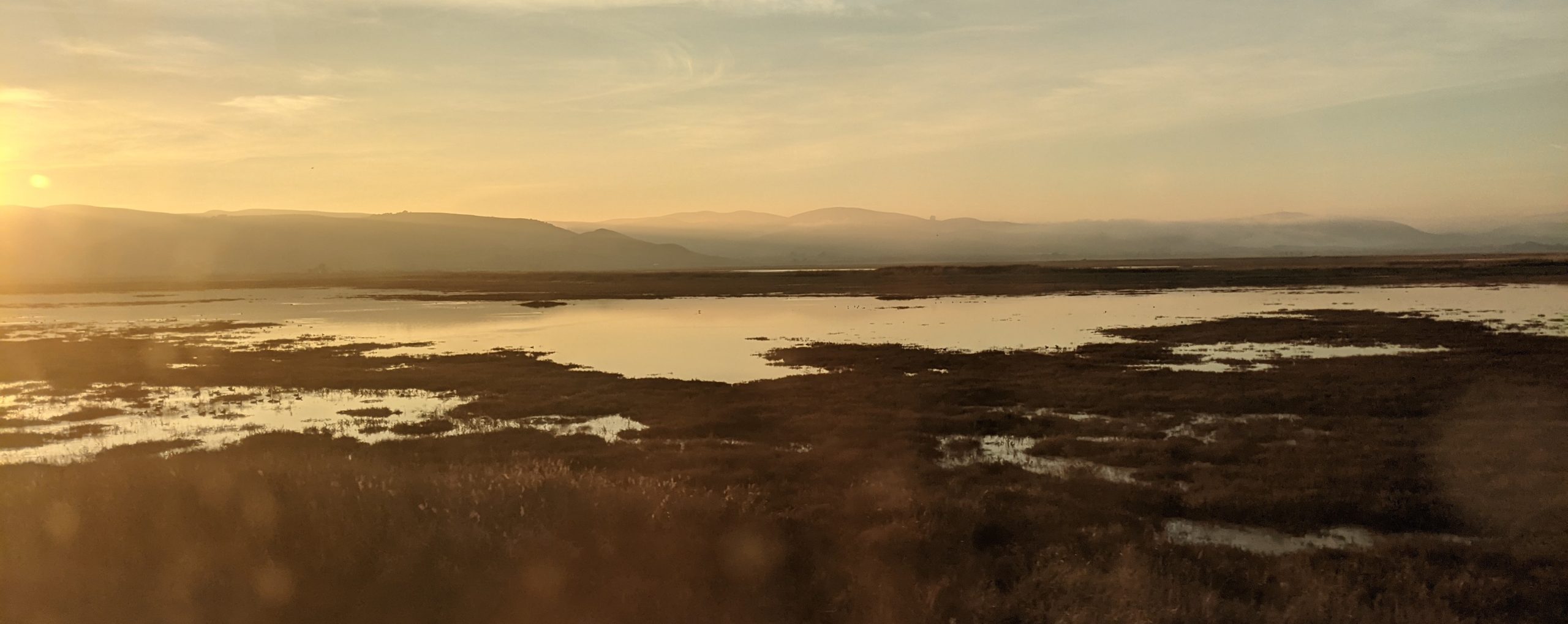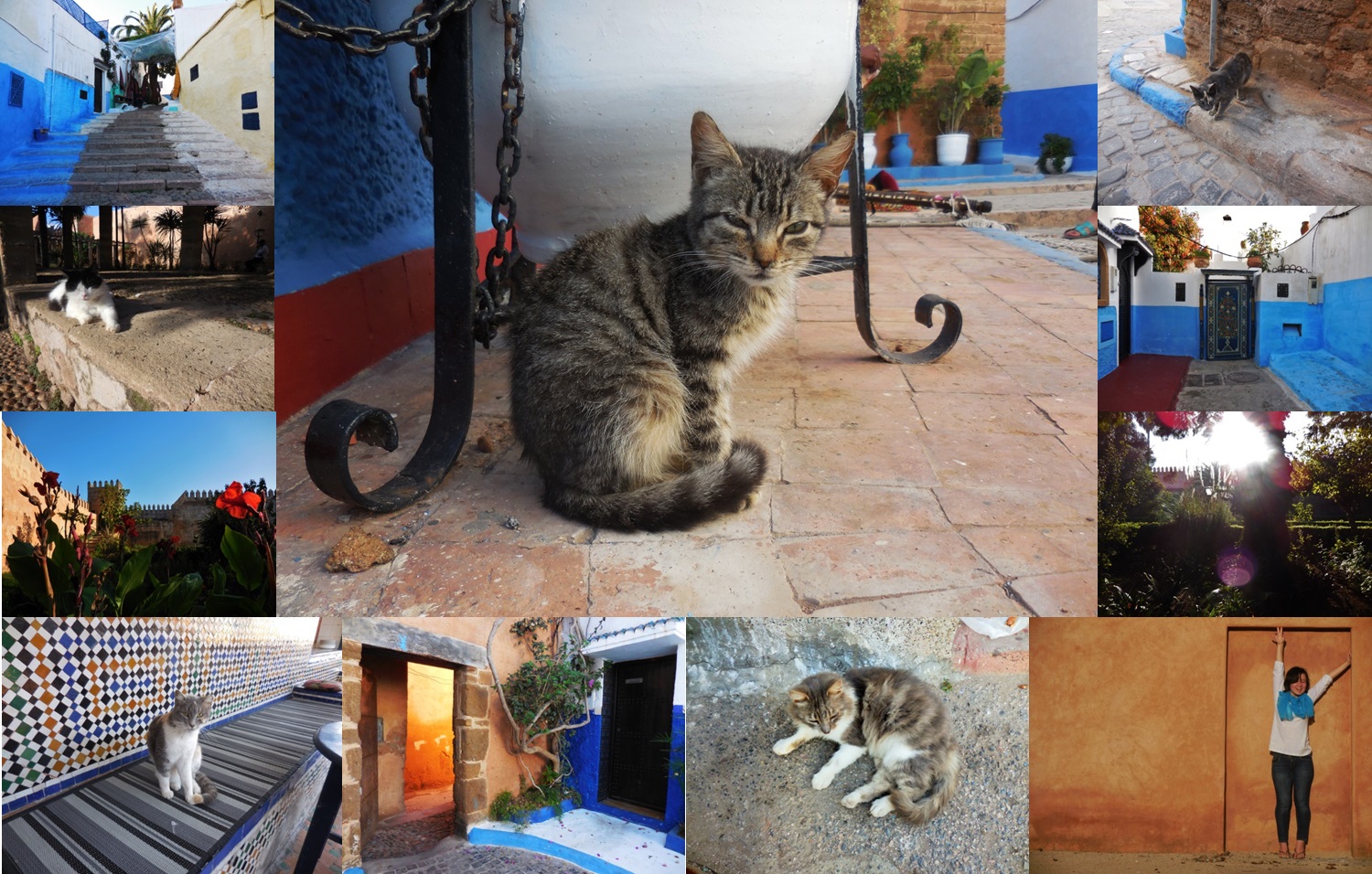It’s an odd feeling, coming back after time away. I’ve been back for five hours, and five days in Amsterdam already feels like a dream (helped, I’d imagine, by my sickness for the entire second half). I was surprised, after a few days away, to be missing my home in Rabat.
Amsterdam was homey. As I mentioned in my last post, it was the most Cambridge-esque city I’ve ever traveled to; the crisp air was that of a New England autumn. I rode a bike and ate good cheese for the first time in a month and a half. Even while on my computer, playing half-asleep of games of 2048 because I couldn’t concentrate long enough to even write a blog post, I felt oddly myself. I’m used to getting colds in autumn and still being drawn to the rain. I’m used to walking alone in a city, aimless and unafraid. Some English-speakers spoke to me in Dutch, because they thought I understood. The first time I sailed off by myself on my bike, I felt as if a huge weight had been lifted off my shoulders—one I hadn’t even known was there.
In Amsterdam, I felt like I’d find a cider doughnut store around any corner—there were bikes and bubble tea and castles, there were things that I associated with my old homes. The only indication that it’s autumn in Rabat are the slightly cooler nights; midday is still sweaty and hot, and neither donkey-carts nor bathers are fazed by the start of October. In Amsterdam, I got catcalled zero times; I did in the first five minutes back in Rabat. Rabat, unlike Costa Rica, doesn’t even remind me of Hawaii or Fiji—the dryness creates the landscape and the air-smell, the architecture is unique, and the fruits are different. New England this is not. The tropics this is not. Upon arriving, I was faced with my first truly foreign environment since age three and a half.
And yet.
When I returned, another weight came off my shoulders. This weight I recognized immediately—it was the weight of not belonging, of temporal visits and sleepless nights in a five-person hostel room. It was the weight of going out to eat for every meal, of unanchored schedules, of the solitary singleness which friends can’t always soothe.
When I returned, I knew the streets, and so I could laugh off the “Welcome to Morocco” catcalls, and smile at those who looked at my suitcase and assume I’d just arrived. I saw that construction had finished on the right side of the road; the orange signs were moving slowly up the street into a less-obstructive position. One black-and-white cat, which I’d been photographing for weeks, was dead, the other sleeping in a bush, too tired to mourn or welcome. I bought bread, but I knew it was worse than the stand across the street, run by the woman who I talked to—it didn’t matter that this was fresh and the other, she often made beforehand and reheated, hers was better. Subjectively. I ordered the bread in Darija, and the baker wasn’t surprised. They’ve started to know me here—the opposite of those who spoke in Dutch to me when I only knew English.
The air, now, is familiar. I have nothing to compare it to but itself, but I feel comfortable in it—I could feel the cold begin to leave and the spring come back in my step. I was confident, recognizing houses, shops, turns, as tourists wandered throughout the streets—that had been me, at the end of September, confused by the maze of streets and smells. Now, the maze welcomed me, and I knew it.
When I turned down my host family’s street, I thought, je vis ici. Not in English, not in Darija, but in French. That, I think, best represents what my position in Rabat’s Medina is and always will be: not quite American tourist, but certainly not local, my outsiderness here always defined by my looks and privilege and upbringing. It’s a place I will become homesick for, but can never be my home.
But sometimes. When I returned home, my host brother was on the terrace and showed me a picture he’d been drawing of a TV show. I asked how the week had been, and he replied that my host baby brother had learned to say a few more words and could now walk with only one hand holding the sofas, not two, and that the festival had been good, but they’d missed me because now I was part of the family. “Oh,” he added, “Oumaima got her hair cut to look like yours”. Sure enough, when my 9-year-old host sister arrived, her hair was short and she grinned widely and kissed my cheek and I felt secure, just as I had when I’d unpacked my suitcase and seen my house slippers and my green potted plant in the window. My host mom had saved a bag of holiday snacks for me, and in it were things I’d never seen in the mainland US, kaki mochi and iso peanuts—things I don’t even like that much, but that remind me of my grandparents in Hawaii. And when I tried to explain in broken French, what I could not even explain in English, my host mom understood.
It was odd, in Amsterdam, not having the call to prayer wake me up at 5 AM, and it was odder not spending four hours a day with my host family—sometimes talking about silly things like Hello Kitty or dyed hair, sometimes talking about our families, sometimes just being, as I am now, keeping a sideways eye out on my baby brother while I type this reflection.
Perhaps I could feel this way about Amsterdam someday, when I need no map for the streets and when I begin to learn the language. Perhaps I could feel even more at home—indeed, I look and act like I could belong; and the streets look like Cambridge, Massachusetts. But even if I could learn all these things, I couldn’t do that as an island, living out of a suitcase in a hostel with schoolkids and renting my bike. While I love to travel, I’ve realized more and more that what I’m searching for is home. “People are more important than places”, my friend from college always tells me. I can see why he says this, but with all due respect, I disagree. People are shaped by places and places are shaped by people and when you try to separate the two, you lose both cities and identities. Without both, you can’t go home.

